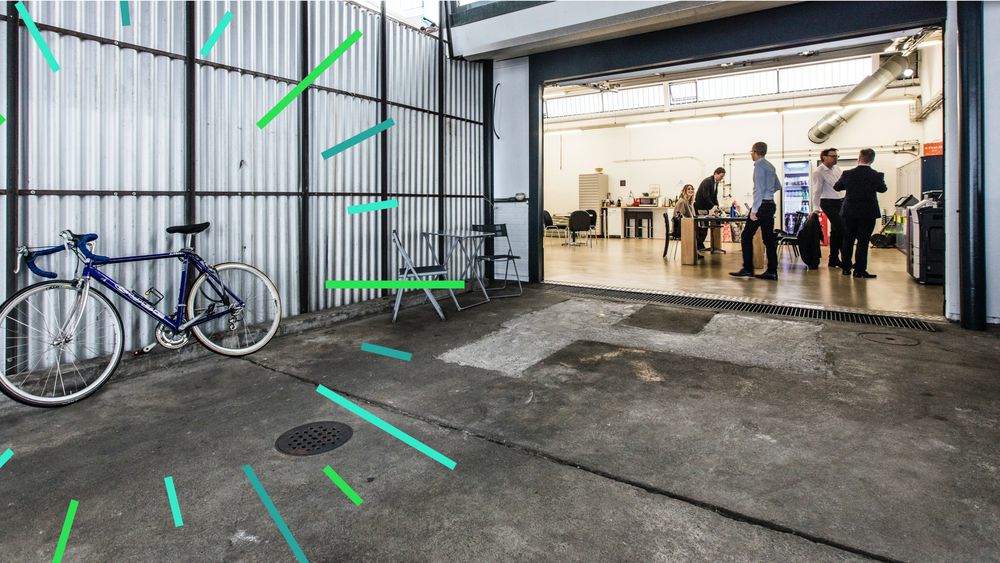While some companies are encouraging workers to return to the office full-time, it’s clear that employees have gotten used to working from home. For some businesses, a fully remote workforce may be impractical—that’s where a hybrid working model comes in.
Hybrid work is a mix of in-office, remote, and on-the-go workers. It gives employees the flexibility to work from home—or their nearest coworking space—so they can maintain a balance between work and their personal lives. Hybrid work demands less of an employee’s time in the office, contributing to a good work-life balance that keeps workers happy and healthy.
What many employers don’t realize is that hybrid work is also great for the environment. Transitioning to a hybrid work model helps individuals and businesses reduce their environmental footprint in a big way. In fact, there’s a full range of sustainability benefits tied to decentralized work—benefits that are becoming more and more prevalent.
Here’s how hybrid helps offset your company’s environmental impact, while keeping your workforce happy.
Lower commuter pollution levels
Commuting is a drag—not only on workers, but also on the environment. Countrywide, the average one-way commute sits at an all-time high of 27.6 minutes. If your workers commute by car, that’s nearly 60 minutes of driving each day and 60 minutes a vehicle’s pumping carbon emissions into the air.
How much carbon does a 60-minute drive pump into the environment? You can get a much more concrete grasp of the environmental impact of the average daily commute with a new emissions calculator. Plug in the city of your choice and see how simple changes in work patterns and commutes can affect emissions. For example, a Houston commuter who ditches the office for working at home can lower their emissions by up to 58%. That’s a big deal.
Ditching the commute isn’t just healthy for the environment—it’s healthier for workers, too. Whether your workers drive or ride public transit to get to work, they’re exposed to high concentrations of air pollutants. In fact, research shows that active commuters inhale more pollutants than the average driver. Cutting out the commute not only saves your workers time, money and energy, it’s also better for their wellbeing. It’s a win-win for everyone involved, and for the environment.
Fewer building energy demands
As hybrid work evolves, so does the role of the workspace. Occupancy patterns are changing in a big way, and they have a big impact on the day-to-day operation of a building. Now, there’s no longer a need to keep the lights on all the time—or to heat or cool a large space to an ideal temperature all year round.
Office buildings are one of the top five building types that have the highest energy consumption. In recent years, the expansion of office floor space and increase in building utilization (impacting HVAC and lighting demand) have increased office building energy consumption in a big way. In fact, research shows that more energy is used by an office building outside of working hours (56%) than during working hours (44%), thanks to building occupants leaving equipment and lighting on when they clock out for the day.
By switching to a hybrid working model, companies can keep the lights and equipment off for the day, to significantly reduce overall energy consumption.
Digital solutions reduce media waste
A hybrid work environment conserves more than just energy. When it comes to working digitally—even for part of the week—there’s generally less waste generated.
For example, you may not realize how big the difference is when it comes to paper usage at a home office compared to a work office. Studies show that U.S. offices use more than 12.1 trillion sheets of paper each year. That’s a lot of waste! Connecting with colleagues in the digital space reduces paper usage and, in some cases, completely eliminates the need for any paper documentation. Not only does less paper consumption save trees, it also reduces greenhouse gases released in the paper-making process.
And that’s just paper! It’s not difficult to spot the other office resources conserved thanks to a hybrid work arrangement.
Even food waste is lower!
Hybrid work even reduces overall food waste. When workers can eat at home or bring their own meal to a coworking space, they don’t have to spend time or energy looking for a quick bite at the nearest fast-food spot. It’s a more sustainable way to eat, since most fast-food chains rely on single-use plastics in their products—even when paper alternatives exist. While these items can sometimes be recycled, they often aren’t.
Working from home or from a local coworking space lets every person do their part when it comes to plastic waste reduction. Now, employees have complete control of the waste they produce. When you stop by the supermarket, be mindful to choose low-waste products that feature recyclable packaging. Not only is this good for the environment, it’s also healthier than the latest meal deal with a generic burger, fries and a drink.
Hybrid is a strong step toward emission reduction
Sustainability is a must in today’s business environment. A company needs to factor environmentalism into its operational model, and a hybrid work helps make that possible. Not only does a hybrid model reduce a company’s overall emissions in a big way, it also keeps more waste out of landfills.
Aside from all these environmental benefits, hybrid work is good for employees. It offers the flexibility workers are looking for to create the work-life balance that’s essential for better productivity. The hybrid office is the office of the future, which makes it important to begin planning for this important shift today. It’s not only great for employees and the environment, but also your bottom line.



